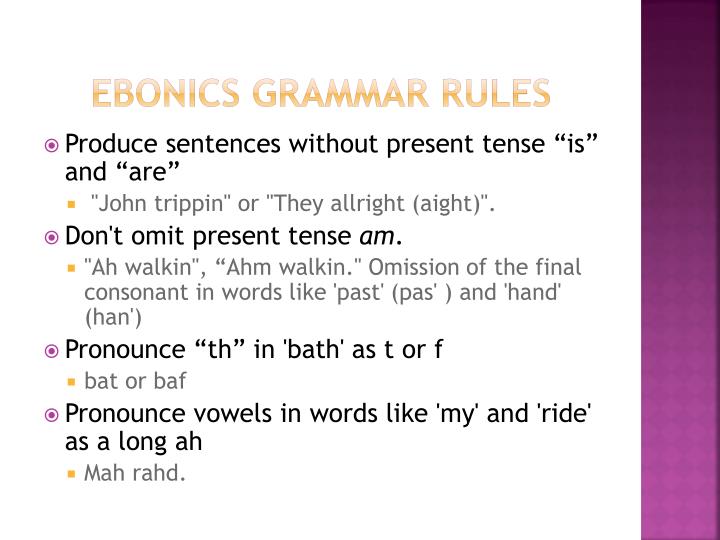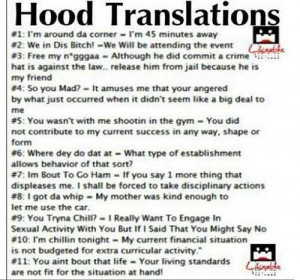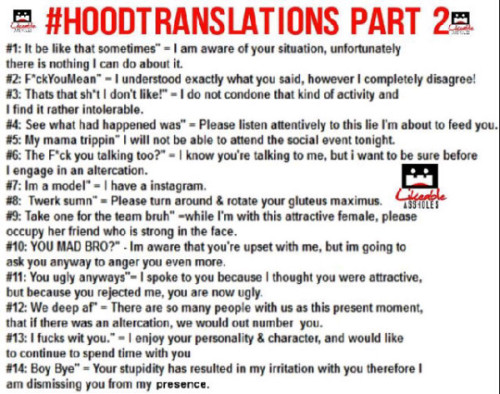The term Ebonics, coined by the author in 1973 at a conference on the language of Black children, was formed by combining ebony (black) and phonics (speech sounds). Two schools of thought on the origin of Ebonics are presented: (a) pidginCreole and (b) African retention. What sparked the national controversy on Ebonics was the Oakland school board's decision to recognize Ebonics as a. Ebonics is the linking or the combination of the terms Ebony (meaning Black) and phonics (referring to sound) and is the term used to define Black speech. Description In 1973 psychologist Robert L. Williams introduced the term Ebonics to define the language usage of some in the AfricanAmerican community. Ebonics: The true language of black folks. : Institute of Black Studies Robert Williams and Associates. (Green 2002 and the Library of Congress online catalog say. In 1975, the term appeared in Ebonics: The True Language of Black Folks, a book edited and cowritten by Williams: A twoyearold term created by a group of black scholars, Ebonics may be defined as the linguistic and paralinguistic features which on a concentric continuum represent the communicative competence of the West African, Caribbean. Ebonics: The True Language of Black Folks. St Louis: Institute of Black Studies. A Linguistic Description of Detroit Negro Speech. Washington, DC: Center for Applied Linguistics. Ebonics (a blend of the words ebony and phonics) is a term that was originally intended to refer to the language of all people descended from enslaved Black Africans, particularly in West Africa, the Caribbean, and North America. Since the 1996 controversy over its use by the Oakland School Board, the term Ebonics has primarily been used to refer to the sociolect African American English, a. Ebonics is not a language that is full with slang or mispronounced words. Although most words are similar to SE vocabulary, how a word is pronounced may have a different meaning in Ebonics. Like all languages of the world, Ebonics has a variety of slang words, general phrases, and grammatical. LSA Resolution on the Oakland Ebonics Issue. 3 January 1997: Approved by members attending the 71st Annual Business Meeting, Chicago Sheraton, Chicago, Illinois Ebonics: The true language of Black folks. St Louis: Institute of Black Studies. Ebonics: The True Language of Black Folks est un livre crit en 1975 par le Dr. Robert Williams, un psychologue afroamricain. Ce livre vient ici dfinir le terme d'ebonics qu'il avait propos en 1973 [1. Ebonics is a term that was originally intended to refer to the language of all people descended from enslaved Black Africans, particularly in West Africa, the Caribbean, and North America. 1970s: The term ebonics is coined at a conference on Cognitive and Language Development of the Black Child, which was held in St. Linguist Robert Williams was the first to use the term and later coauthored a book exploring the dialect titled Ebonics: The True Language of Black Folks. book 'Ebonics: The True Language of Black Folks The name comes from a mix of Ebony and Phonics, and is defined by Williams as the linguistic and paralinguistic features which on a Get Textbooks on Google Play. Rent and save from the world's largest eBookstore. Read, highlight, and take notes, across web, tablet, and phone. In Ebonics: The True Language of Black Folks, he asserts Ebonics as the linguistic and paralinguistic features which on a concentric continuum represent the communicative competence of the West African, Caribbean, and United States (Williams 24). Ebonics is a term that was originally intended to refer to the language of all people descended from enslaved Black Africans. Ebonics was coined by Robert L. Williams in 1973 and first used in his book Ebonics: The True Language of Black Folks. Ebonics The True Language of Black Folks What is Ebonics What do Black scholars say about it How did it develop Who speaks it All of these questions are answered in. In theory, scholars who prefer the term Ebonics (or alternatives like African American language) wish to highlight the African roots of African American speech and its connections with languages spoken elsewhere in the Black Diaspora, e. Note: Citations are based on reference standards. However, formatting rules can vary widely between applications and fields of interest or study. The specific requirements or preferences of your reviewing publisher, classroom teacher, institution or organization should be applied. In seinem Buch Ebonics: The True Language of Black Folks erklrt er: Als zwei Jahre junger Begriff, eingefhrt von einer Gruppe schwarzer Gelehrter, kann Ebonics definiert werden als die linguistischen und paralinguistischen Eigenschaften, welche die kommunikativen Kompetenzen der Westafrikanischen, karibischen und USamerikanischen. Royal Academy of Art Study Guide 2013. Arthur Reinders Folmer; Anton Lamberg; Contributed by Arthur Reinders Folmer LSA RESOLUTION ON THE OAKLAND EBONICS ISSUE Ebonics: The True Language of Black Folks. St Louis: Institute of Black Studies. A Linguistic Description of Detroit Negro Speech. Washington, DC: Center for Applied Linguistics. Ebonics: The True Language of Black Folks's wiki: Ebonics: The True Language of Black Folks is a 1975 book written by Dr. Robert Williams, an AfricanAmerican psychologist, who had coined the term Ebonics two years earlier. Ebonics is the equivalent of Black English and is considered to be a dialect of English (TolliverWeddington 1979). Ebonics is the antonym of Black English and is considered to be a language other. Ebonics is a superordinate term for a category of Black Language forms that derive from common historical, social, cultural, and material conditions. It refers to language forms such as African American Language, Jamaican Creole, Gullah Creole, West African Pidgin English, and Haitian Creole, as well as AfroEuro language varieties spoken in. In 1975, the term appeared in Ebonics: The True Language of Black Folks, a book edited and cowritten by Williams: A twoyearold term created by a group of black scholars, Ebonics may be defined as the linguistic and paralinguistic features which on a concentric continuum represent the communicative competence of the West African, Caribbean. Two years later the word appeared within the title and text of a book edited and cowritten by Williams, Ebonics: The True Language of Black Folks. Some writers stress how the term speaks for a view of the language of African Americans as African rather than European. Coined by scholars at the 1973 Cognitive and Language Development of the Black Child conference led by Robert L. Williams and published in his 1975 book Ebonics: The True Language of Black Folks. See Ebonics (word) on Wikipedia. Ebonics: The True Language of Black Folks est un livre crit en 1975 par le Dr. Robert Williams, un psychologue afroamricain. Ce livre vient ici dfinir le terme d'ebonics qu'il avait propos en 1973 [1. Ebonics: The True Language of Black Folks is a 1975 book written by Dr. Robert Williams, an AfricanAmerican psychologist, who had coined the term 'Ebonics' two years earlier. This book defines the term as the linguistic and paralinguistic features which on a concentric continuum represent the communicative competence of the West African, Caribbean, and United States slave descendant of. Ebonics: The True Language of Black Folks. Louis: Robert Williams and Associates, 1975. Dennis Baron is professor of English and linguistics at the University of Illinois at. Ebonics: The True Language of Black Folks is a 1975 book written by Dr. Robert Williams, an AfricanAmerican psychologist, who had coined the term Ebonics two years earlier. This book provided a definition of the term as the linguistic and paralinguistic features which on a concentric continuum represent the communicative competence of the West African, Caribbean, and United States slave. In 1975, the term appeared in Ebonics: The True Language of Black Folks, a book edited and cowritten by Williams. Ebonics may be defined as the linguistic and paralinguistic features which on a concentric continuum represent the communicative competence of the West African, Caribbean, and United States slave descendant of African origin. Ebonics: The True Language of Black Folks is a 1975 book written by Dr. Robert Williams, an AfricanAmerican psychologist, who had coined the term Ebonics two years earlier. This book defines the term as the linguistic and paralinguistic features which on a concentric continuum represent the communicative competence of the West African. Ebonics: The True Language of Black Folks 1975. The Old, Fat, White Guy's Guide to Ebonics Ebonics And Language Education Of African Ancestry Students Jan 31, 2001. 95 (10 used new offers) Ebonics This article is within the scope of WikiProject Books. To participate in the project, please visit its page, where you can join the project and discuss matters related to book articles. To use this banner, please refer to the documentation. To improve this article, please refer to the relevant guideline for the type of work. Stub This article has been rated as StubClass on the project's quality. In 1975, the term appeared in Ebonics: The True Language of Black Folks, a book edited and cowritten by Williams: A twoyearold term created by a group of black scholars, Ebonics may be defined as the linguistic and paralinguistic features which on a concentric continuum represent the communicative competence of the West African, Caribbean. Ebonics was coined by Robert L. Williams in 1973 and first used in his book Ebonics: The True Language of Black Folks. Available under CCBYSA license. An alternative name for AFRICANAMERICAN VERNACULAR ENGLISH, used by Robert L. Williams in his book Ebonics: The True Language of Black Folks (Institute of Black Studies, St Louis, Mo. Ebonics was coined by Robert L. Williams in 1973 and first used in his book Ebonics: The True Language of Black Folks. 00 0 votes) Rate this definition: Ebonics. A few weeks ago, I came across a video on YouTube titled, Father of 21 Children By 14 Women Gives Interview in Ebonics, that inspired me to answer the question of Why Do Black People Speak Ebonics? The video was a recording of a black man having an interview with his local news station in regards to him having 17 different baby mothers. In Ebonics: The True Language of Black Folks, he asserts Ebonics as the linguistic and paralinguistic features which on a concentric continuum represent the communicative competence of the West African, Caribbean, and United States (Williams 24). Ebonics has 6 ratings and 1 review. ralowe said: reading this i kept getting continually distracted with wondering what causes me to have such melancholy Lessons on how to talk black. Rapper 50 Cent Had Enough Of Joy Behars RaceBaiting And Dismantles Her On Live TV(VIDEO). The term was first used in a book called Ebonics: The true language of Black folks, by Robert L. It was actually coined two years earlier at the conference whose proceedings were published in that book. Ebonics: The True Language of Black Folks [Robert L. FREE shipping on qualifying offers. Robert Williams, an AfricanAmerican psychologist, who had coined the term Ebonics..











